When people tell me, “nooooo–you’re not fat,” I see that as an insult. I know that the intention is not to be insulting–it is, rather, to be consolatory–but that’s the impact. Why? Well, there are two reasons: First, it’s condescending. I am a big girl. I wear a size 22 in pants–a size I can’t find at 95% of clothing stores. I weigh a good 100 pounds more than I should, according to my doctors. (And a good 175 pounds more than I should, according to media messaging.) The reality is: I am fat, and we all know it.
Second, and most importantly, it implies that fatness is something I wouldn’t or shouldn’t own. It implies that being fat is something to be ashamed of.

This is 4-year-old Danielle. Ain’t she a cutie? If you look closely, you can see the very early stages of what would become a second chin that would follow me around for life. This is when I first started to plump up.
If you ask my family, they’ll tell you that I started to gain weight at around the same time my parents got divorced. I think they like that narrative, as it gives some sort of rational account for why I, by the time I reached 1st grade, was overweight. The conclusion being that–much like Kate on the ever-popular show, This Is Us–I must have been so traumatized by the demise of my family that I had to eat my feelings.
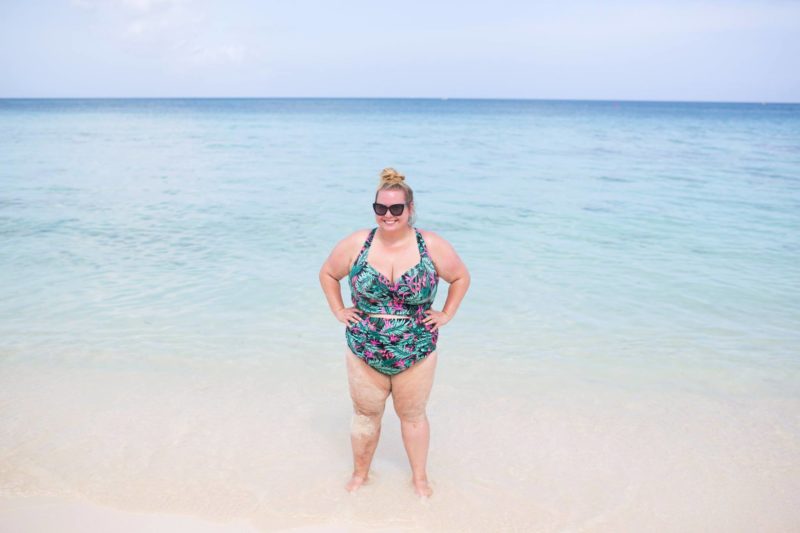
That’s a pretty popular narrative, culturally. I credit a lot of people for that; (Oprah is one one of them). I grew up being critically aware of the fact that I must be broken inside, as there could be no other explanation as to why I was a chubby kid. Clearly, as everyone seemed to believe, I lacked any self-control, and I used cookies as a way to deal with the fact that I couldn’t deal at all.
(Fast forward 30 years or so–past a diagnosis of PCOS, Syndrome X, Klippel-Trenaunay, and Type 1 Diabetes, along with some other medical anomalies–and I’m pretty sure my body just does what it was always meant to/designed to do.)
For most of my life, whenever I saw–or spoke to–family members who I hadn’t seen in a while, I was always greeted with a status report on my weight. Always. A large portion of my childhood conversations began with “Oh, you look like you’ve lost some weight!” or “How is your weight, sweetie?” Sometimes, the person I was speaking to would try to be a little more politically correct and would, thusly, opt for “How’s your health?” or “Are you taking care of yourself?” But ultimately, what I always knew, is that they were all really asking the same question: “Are you still fat?”
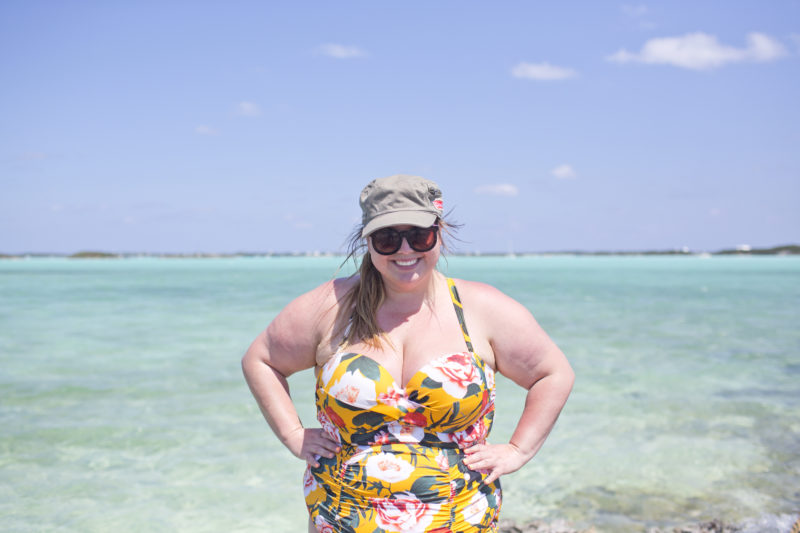
Yes, yes I was. (And let’s not even talk about how many times I’ve been told, pleadingly, “But you have such a pretty face!”)
I was on doctor-monitored diets from the time I was in elementary school. If there was a diet fad in the late 80’s-late 90’s, I tried it! Fen-Phen–the diet pill later found to cause heart defects? Took it! Weight Watchers meetings with a bunch of 40-50 year old women? Attended them (as an 11 year old)! Low carb, no carb? I did it all.
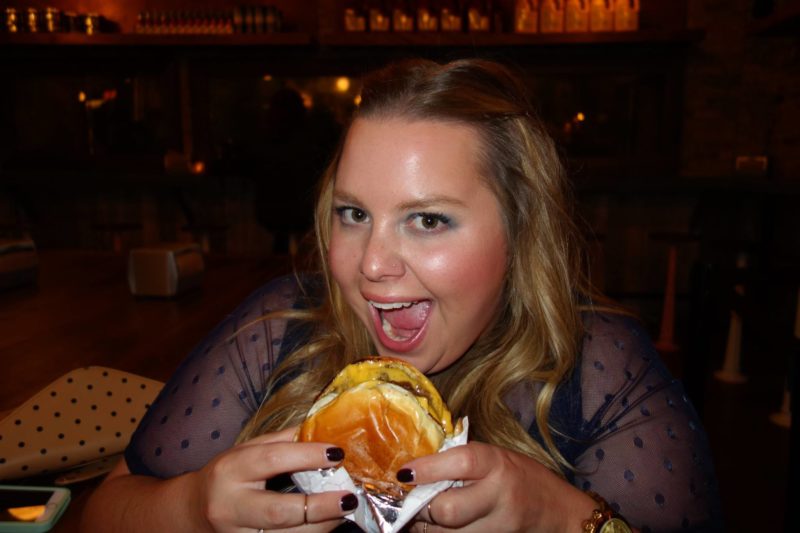
By all accounts, I should’ve been the healthiest, thinnest teenager below the Mason Dixon. Instead, I did what most kids who are repeatedly reminded that they are fat–and that their fatness is a defining characteristic–do: I internalized the fat-phobia and body shaming, and I felt really bad about myself.
(And I want to add: I don’t blame my family for their reaction to–or attempts to treat–my fatness. Their concerns about my weight were (are) driven by a social stigma whose influence is almost impossible to avoid. They did what the world told them they should do in reaction to my being a fat kid, and I don’t at all fault them for that.)
I didn’t wear bluejeans until I was like 15 years old. I tended towards overly-baggy clothes that hid every part of my body. I–ashamed of my hunger, not driven to it by shame–hid what I ate, often finding miraculously sneaky ways to pilfer chips or cookies or any other treat without anyone knowing that, god forbid, I’d opened the pantry.
I developed some necessary self-defense mechanisms–some healthy, some not so much–to steel myself against the never-ending concern for, and criticism of, my size.
My most powerful defense was stoicism. That is, I developed an uncanny ability to pretend that I didn’t care what others said about my body. I was, as it must have seemed to outsiders, the Queen of Self-Confidence. I used humor to deflect. You think my belly is too flabby or my boobs are too big? Well, I’ll walk around Wal-Mart, shirt tangled up high, flaunting my belly for all to see. It was a powerful defense and it worked, most of the time.
I wore that facade for so long that, at some point–and I’m really not sure when: late high school? college?–I actually crossed the line into believing the false reality I created: I really, truly stopped caring about how others saw my body.
I like to joke that being a fat kid is the best thing that ever happened to me. But in all honestly, it’s not a joke. I don’t remember a time when I wasn’t fat. I was never able to rely on my physique as a way to get things I wanted. I could never walk into a clothing store and buy something hip right off the rack. I don’t have memories of having a slim and slender body to think of, regretfully, when I look in the mirror. There aren’t any “goal photos” that I can pin on the fridge, reminding me of when I could fit into a size 4 bikini.

But I also never thought that my self-worth was dependent on my jean size. I never compared my thinness to the thinness of my girlfriends, wondering who had the flattest stomach. I knew that being skinny wasn’t in my cards, and so I never had that goal dangling in front of me, taunting me, making me feel guilty for what I did or didn’t eat, for whether or not I’d spent enough time in the gym, or for whether I could fit into last year’s dress. I am not afraid to post a photo of myself eating a triple-patty-cheeseburger or one-too-many donuts on Facebook. In fact, in the past couple of years, I’ve completely given up on uncomfortable one-piece swimsuits and regularly post photos of myself in a “fat-kini” for everyone on Facebook, including my boss, my wife’s co-workers, and others, to see.
I don’t allow myself to feel any shame about the fact that I really, sincerely adore food. I plan whole travel adventures around what kind of food I want to eat. I watch food shows and read food blogs and collect recipes like fine jewelry. I enjoy it, and I let myself enjoy it.
I don’t think about my body very much, now, but I find that most of the women in my life–especially my girlfriends who, ironically, all have very nice, slim bodies–are preoccupied by how those bodies look, almost more than anything else in their lives. As someone who is an outsider to that kind of thinking, I take notice of it constantly. I think that worrying about, complaining about, or shaming women’s bodies–either our own or others–is so common in our culture that most women don’t even recognize how much space those kinds of conversations and comments take up.
I have to remind my own wife, Sona, of this constantly. For most of our 17-year relationship, she’s been the picture of health and physical fitness, but she’s also fiercely critical of her own body and sometimes, as a result of her own self-scrutiny, of others. When she complains that her size 4 jeans are getting a little tight, I am quick to remind her that I couldn’t fit my left arm into her jeans.
Being fat has impacted my life in other, less direct, ways, too. When I first came out as a lesbian, the immediate response from a large faction of my family was to assume that, because I was overweight and likely couldn’t find any boys who would be attracted to me, I must have chosen to be gay as a way to overcome the overwhelming loneliness and sadness that is being a fat girl.
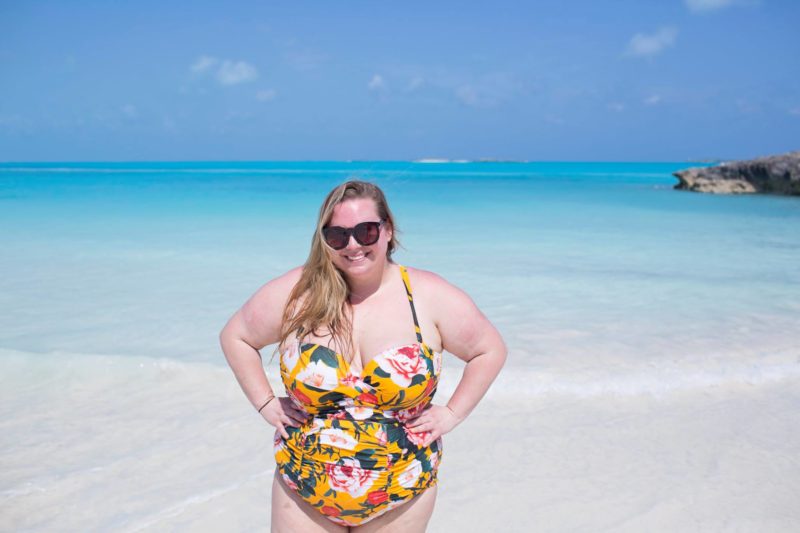
Of course, that’s ridiculous. I mean, there are men who do like chunky women, and wouldn’t I have found them before opting for boobs, instead?
Further, whenever I go to the doctor for absolutely anything, the immediate assumption is always that my ailment is a result of my weight. And, to be far, sometimes it is. Being obese can be unhealthy, and doctors are, mostly, doing their jobs by reminding me of that. But also, they frequently over-look or misdiagnose me because they assume, like so many others, that being fat is all-defining. It is the only part of me that matters.
For 2-3 years, I suffered from extreme weight loss, exhaustion, and just all around cruddyness because my doctors assumed that, since I was fat, I must have been a Type 2 Diabetic. T2D is a lifestyle disease, often the result of a very unhealthy lifestyle. I was given medication that didn’t actually regulate my blood sugar, but instead, medication that made me more ill. It wasn’t until I had to explicitly demand that I be tested for the antibodies that indicate Type 1 Diabetes, an autoimmune disease, that doctors recognized I had been on the wrong treatment plan for years.
Also, in the past couple of years, I’ve seen how folks’ barely-veiled disgust at my own weight has bled into not-at-all-veiled concern for Finn’s. Since he was born, we’ve had several friends and family members who have been hyper-vigilant about what he eats and how much he weighs. If we post a photo of Finn eating a donut on Facebook, it isn’t uncommon for us to get a text, questioning whether he ever eats anything that is not a donut. We have people who ask us, nearly every time we talk to them, whether Finn is “getting fat” or gaining too much weight.
And while I understand that health is a legitimate concern–one people have for myself and one people have for Finn–I think we also have to admit that concerns about health are not what drives most of the fat-shaming in our society. And I know that the internalized fat-phobia people have towards me heavily influences their concerns about whether or not Finn will, for lack of a better word, catch my fatness.
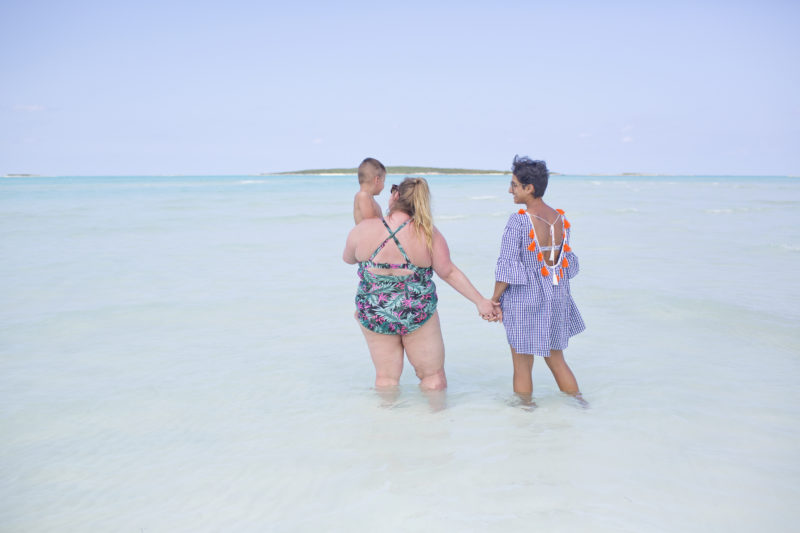
This is a post I’ve been wanting to write for a long time, and one that I–I imagine–is the first of many.
For now, I’ll end with this: No, Finn, really. Your momma is fat. And I’m 100% okay with it.
So, so, so much fat girl solidarity. I could have written 90% of your childhood narrative myself. Right down to the fen phen, which my mother paid for a bit too enthusiastically. I went to two different summer weight loss camps, a nutritionist or 3, and I was always so ashamed. My wife had similar experiences, too. This is on my mind constantly as we raise our daughter.
YES I totally agree with all of this! I’m exactly the same, always had a ‘pretty face’ and been overweight. And I’ve got to say, I like it! I, like you, feel like growing up this way means I like my body for what it is – i dont spend much time at all thinking about it, and I have self confidence that isn’t reliant on my weight. At times I try to lead a healthier lifestyle (#lesspizza) but that is always led by positive thoughts, like right now, that i want to get a bit more fit so i can run around with our baby, etc. Never that I dislike part of my body and want to change it. I think that attitude in itself is such a gift, and I’m glad we both have it! 💪🏻 I’m surprised people are so nosy about Finn’s weight though- maybe it’s the culture here in the UK but I’ve not heard of someone doing that, and I would not take kindly to someone asking me those kinds of questions once our little girl is born! I want her to grow up with as healthy a view of her body as possible, and that does NOT include fat shaming!!